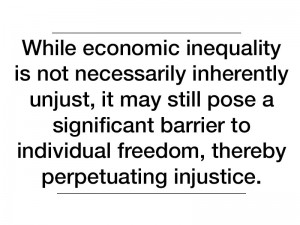In response to the “Shades of Black” incident that took place in February, and in order to further campuswide education on the topic of race, Student Life and Spiritual Life will be hosting several dinner discussion panels before the end of the semester to continue the conversation on race at Houghton. According to Rob Pool,vice president of student life, the intent behind the events is for students to come to a fuller understanding of “where people are coming from individually” in order to help “shape a better community picture” on Houghton’s campus.
 Mike Jordan, dean of the chapel, stated that while it would be difficult to coordinate too many events before the end of the semester, “we’d like events to continue into the fall.” Jordan also said that he was “working hard to bring in speakers to chapel next year who will be able to speak to the realities that divide white Christians and Christians of color.”
Mike Jordan, dean of the chapel, stated that while it would be difficult to coordinate too many events before the end of the semester, “we’d like events to continue into the fall.” Jordan also said that he was “working hard to bring in speakers to chapel next year who will be able to speak to the realities that divide white Christians and Christians of color.”
According to the Community Covenant, which all students sign, the Houghton community pledges to “seek to be a community of inclusion… [and] joyfully celebrate one another, rejoicing in our uniqueness, diversity, environment, heritage and calling.” The Covenant also condemns “discrimination and prejudice (whether of race, gender, ethnicity or socioeconomic class).”
After the Shades of Black display, which showcased the stories of African and African-American students of varied backgrounds, was vandalized in February, Student Life took action to identify the person responsible—an alum of Houghton. That evening, Greg Bish, Director of Student Programs, gathered students who had been involved in planning and who were featured in the display for a discussion. One of the key pieces of information that emerged from this dialogue, according to Pool, was that “those who were victimized should not be the ones tapped to help solve or address it” but that “it really needed to be an institutional response.” The diversity events that will be occurring are a direct response to those prior events/
Pool stated that while it is “the student’s responsibility to learn, to grow, to discuss, to grow and to change,” the college has “a major role” in planning events and providing resources and forums at which education on race-related topics can occur. Jordan echoed that concern, stating that while the college is seeking to be “very open to student input, especially the input of students of color,” the college is simultaneously trying to avoid making students feel “if anything’s going to get done, they have to do it”. Spiritual Life’s role in this process should extremely important as well, because “Making room for each other, listening to each other, not jumping to conclusions, finding ways to live peaceably together–these are essential [Gospel] things”, Jordan said.
The defacing of the Shades of Black was described by Pool as “eye-opening” to a “lack of understanding among some of our students,” as the person responsible was an “an outgrowth of the experience here in this community” while other students responded with “gross ignorance” to the fact of the privilege white students experience.
Jordan stated that one of the important things he learned was “how very important it is to mourn with those who mourn.” Jordan also said that that when someone has been deeply hurt “the Gospel doesn’t call us to defend ourselves, nor to lecture the person about why their pain is illegitimate.” As a Christian liberal arts college, it is important that we have continue to explore “each other’s stories about what the Gospel does for us; and students from a dominant white culture need to listen attentively to the stories of non-white Christians even when it’s a bit jarring to them,” Jordan said.
For those not personally affected by the incident but who condemned it and the attitudes who produced it, Pool recommended continuing to speak out in support of their fellow students who were hurt. He commended those who responded with “with genuine, visible expressions of support” for their fellow students and friends after the defacing of the Shades of Black display. Jordan called for bravery on the part of white students who may have been “reluctant or unwilling to see if they actually had something to learn from the experience,” saying that the Houghton community needs to have “the humility to listen to others’ pain and examine our own hearts.”
According to Pool, the freshman class this year has the highest percentage of racially diverse students in Houghton’s history; at present, the incoming first year class for the fall is set to surpass that record.

